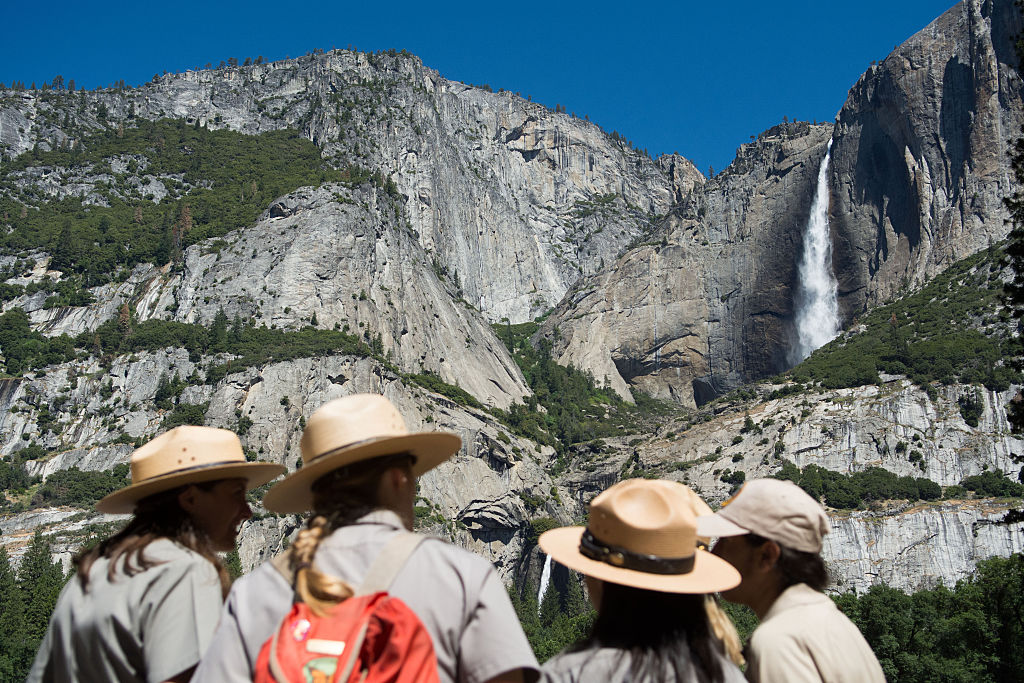“It starts from extremely smooth and it can go to really complex. It can be metallic, it can be harsh, it can be fruity, it can be nutty; it can even be salty and sweet,” Martin Riese says.
As our country's only certified water sommelier, Riese often describes the nuanced flavor profiles of natural spring water as if they belonged to a fine bottle of merlot. Overseeing a serious H20 menu of 20 different options at Los Angeles’ Patina Restaurant, the German national is a water iconoclast of sorts. Where most people think of water as a mundane beverage, Riese finds luxury and complexity. A couple of years ago, it was Riese who was recruited by GQ Magazine to track down a $100,000 diamond-encrusted bottle of water for Thirst Influencers Diplo and 2Chainz.
Riese first discovered he had a thirst for water knowledge while vacationing with his parents as a young child. “This was, for me, mind-blowing that even tap water tasted differently from different cities in Europe,” Riese says. However, it wasn’t until 2005, while working at Berlin’s Michelin-starred restaurant, First Floor, that the light bulb clicked, thanks to a customer who asked him why they only served one brand of water but hundreds of wines. In his research, he contacted water producers to sample their beverages, did meticulous side-by-side taste tests, and conducted lots of online research. In 2009, he co-authored a book on water, and by 2010 became certified as a water sommelier by the German Mineral Water Trade Association.
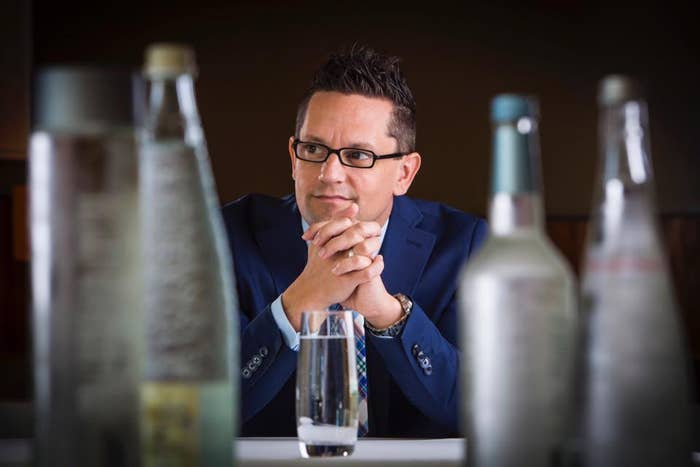
What were his findings? Flavor profiles, it turns out, will change depending on location, similarly to how wine is affected by terroir. Water is measured in TDS (total dissolved solids), or the amount of minerals it contains, Riese explains. Different combinations and amounts of magnesium, calcium, and potassium can affect the taste. For instance, glacier water tends to be smooth and fruity because they’re floating blocks of pure ice. On the other end of the spectrum, S.Pellegrino comes from natural springs that have made contact with underground rocks, thus causing it to taste a tad salty from the higher mineral content.
Throughout his career, Riese has sampled over 1,000 varieties of water from all over the world, making him a man of particular tastes. The melted result of a summertime harvest of a 15,000-year-old Canadian iceberg, Berg water, Riese will tell you, is as "extremely smooth on your palate, like literally, extremely, smooth.” If a restaurant only offers the kind of H20 he loathes, he’ll leave. At home, he chills his bottled water in a wine fridge set at 59 degrees Fahrenheit. And believe us, he’s not a fan of adding ice and lemon wedges to water.
With a palate like Riese’s, you won’t find him seeking out New York or L.A. tap. But, contrary to popular belief, he insists that there are times when tap is better than bottled spring. That's not the only surprising #knowledgedart our country's foremost water expert dropped on us. Here, Riese debunks 8 major myths behind our world's most ubiquitous beverage.
Myth: All water mostly tastes the same.

Myth: Carbonated water can leach calcium from your body and teeth.
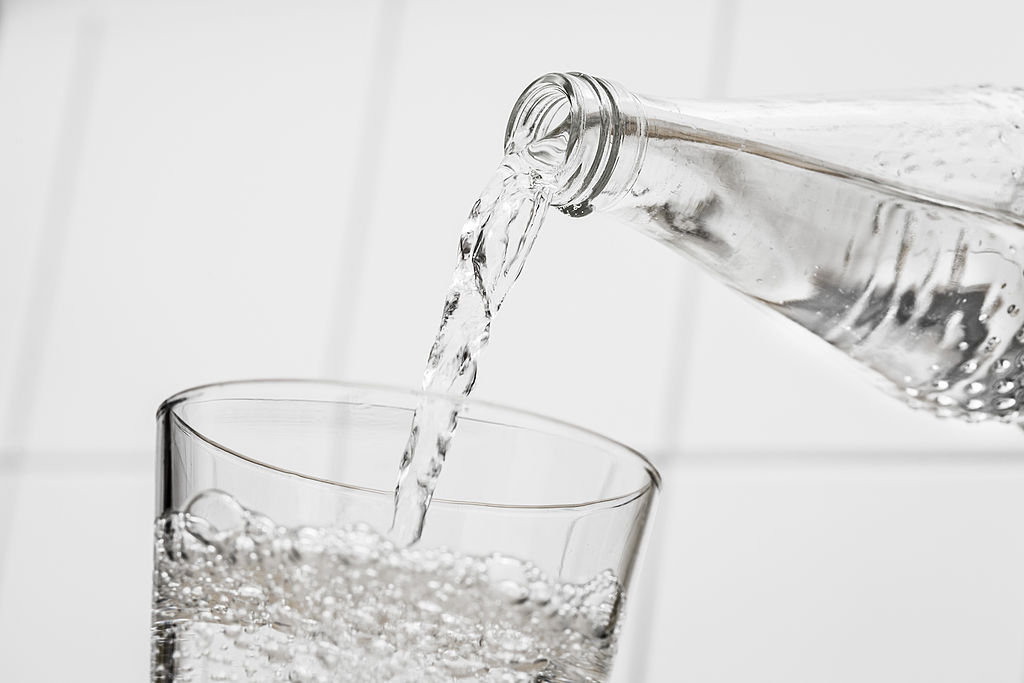
Myth: The shape of your water glass doesn't matter.
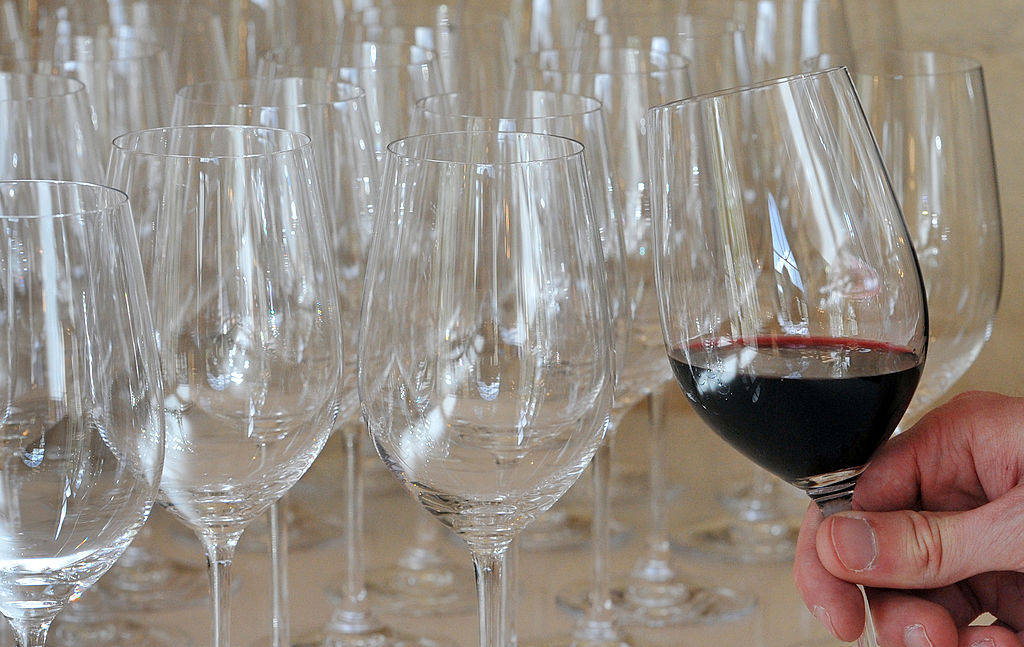
Myth: Bottled spring water is better than tap water.

Myth: Charging over $20 for a bottle of water is ridiculous.
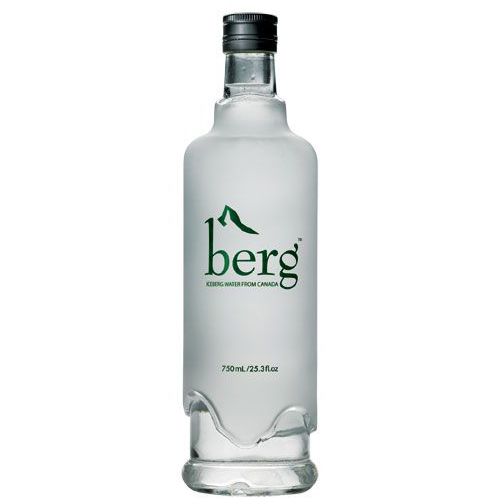
Myth: Tap water is healthy to drink if you use a filtration system at home.

Myth: If you want to fight the drought in California, fight bottled water.

Myth: National parks protect us by banning bottled water.
